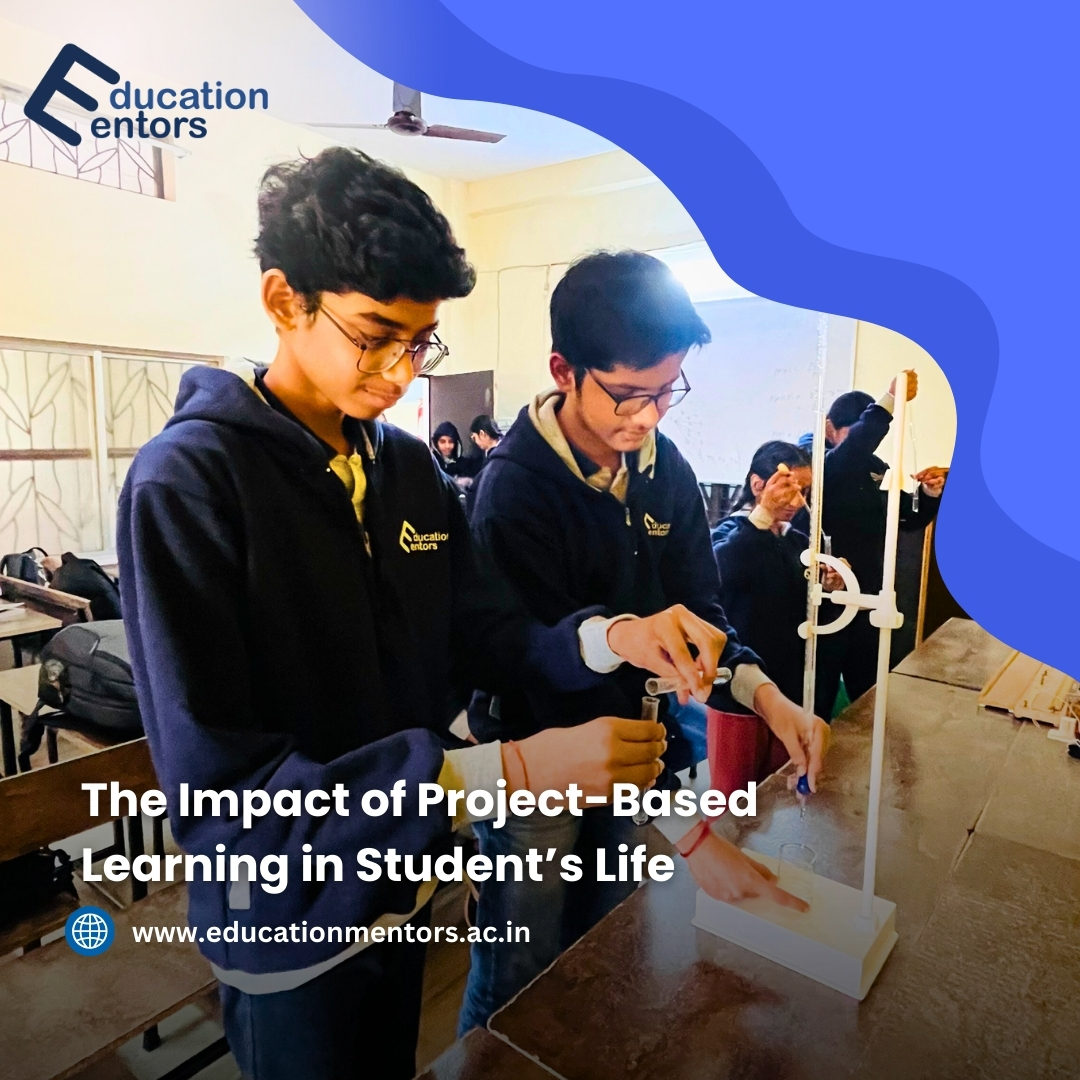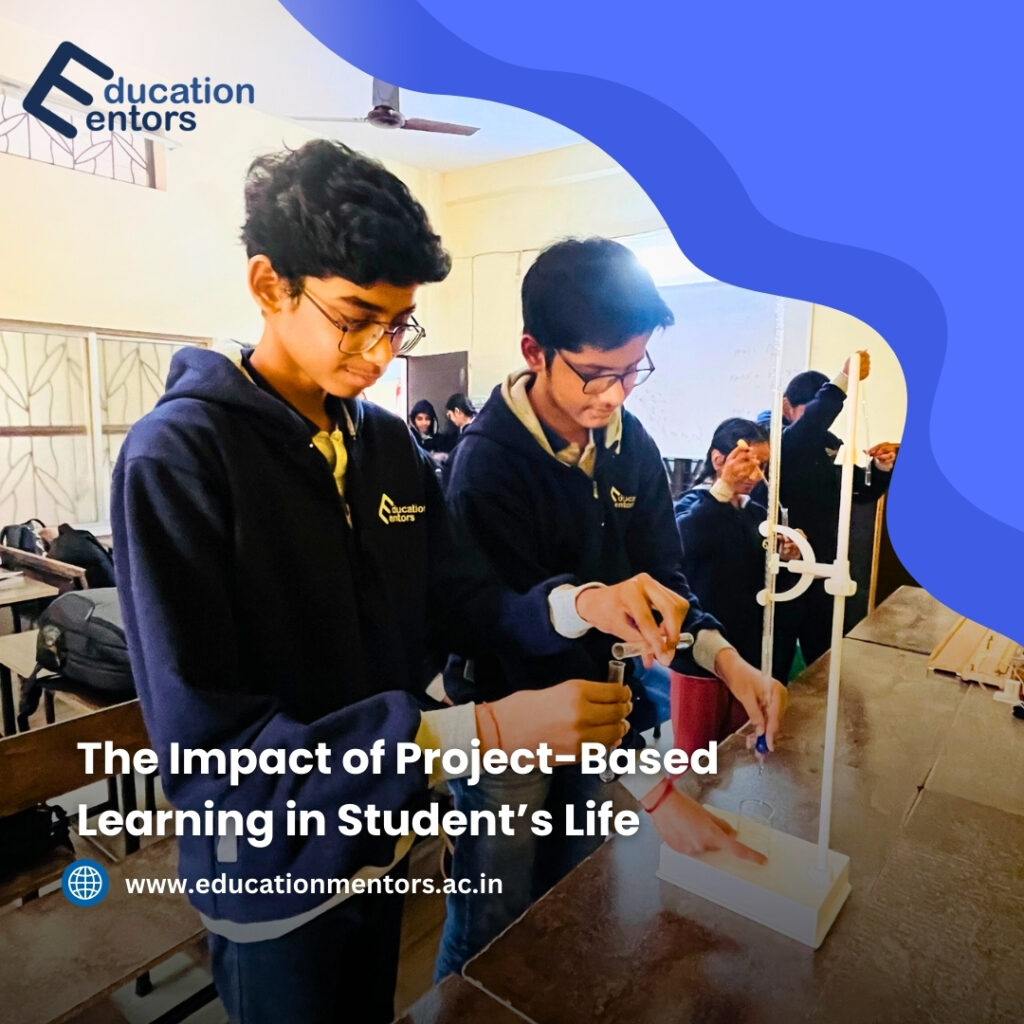In today’s fast-evolving educational landscape, traditional methods of instruction are giving way to more dynamic, student-centered approaches. One such innovative method that has proven to significantly enhance learning outcomes is Project-Based Learning. At Education Mentors Academy, we emphasize Project-Based Learning across all our facilities, including the computer lab, science lab, and math lab, enabling students to learn through real-world applications and hands-on experiences.
What is Project-Based Learning?
Project-Based Learning is a teaching method where students engage in exploring and solving real-world problems. Instead of the passive absorption of facts, students actively participate in projects that require critical thinking, creativity, collaboration, and communication. They delve into subjects by tackling practical challenges, making learning both meaningful and memorable.
Why Project-Based Learning Matters in Student Development
- Enhances Critical Thinking
Project-Based Learning encourages students to approach problems creatively. When a student is tasked with developing a solution to a real-world problem, they must think critically and evaluate all possible outcomes. At Education Mentors Academy, students in the math lab solve complex equations and analyze data, while our computer lab facilitates coding projects, making critical thinking a core part of their learning process. - Promotes Active Learning
Traditional classrooms often involve passive learning, where students absorb information without deep engagement. Project-Based Learning turns that dynamic on its head. In our science lab, students conduct experiments and explore scientific phenomena, fostering a hands-on approach to learning. This active participation ensures better knowledge retention and a deeper understanding of the concepts being taught. - Develops Collaboration and Communication Skills
Working on projects in teams enhances students’ abilities to collaborate and communicate effectively. Whether it’s a group coding project in the computer lab or a collaborative scientific experiment, students learn to work together, share ideas, and develop solutions collectively. These interpersonal skills are crucial in today’s globalized and interconnected world. - Bridges the Gap Between Theory and Practice
One of the major challenges students face in traditional education is understanding how theoretical knowledge applies to real-life situations. Project-Based Learning bridges that gap. For instance, in our math lab, students apply mathematical theories to practical scenarios, such as building models or analyzing real data sets, making their learning experience more relevant to their lives. - Fosters Independence and Ownership
Project-Based Learning encourages students to take ownership of their education. By giving them the freedom to explore and make decisions, Project-Based Learning fosters a sense of independence and responsibility. At Education Mentors Academy, our students are guided to take the lead on projects in the science and computer labs, helping them build confidence in their abilities. - Prepares Students for the Future
In today’s competitive world, success goes beyond academic knowledge. Employers are looking for individuals with problem-solving abilities, creativity, and strong teamwork skills. Project-Based Learning equips students with these skills early on, preparing them for the challenges of the future. Whether students aspire to be engineers, scientists, or entrepreneurs, our Project-Based Learning approach gives them a head start on their journey.
How Education Mentors Academy Implements Project-Based Learning
At Education Mentors Academy, we pride ourselves on our holistic approach to education. Our dedicated labs provide students with opportunities to dive into projects that challenge them intellectually while preparing them for future success.
- Computer Lab: Students design websites, build software, and explore the world of coding through practical projects that teach them programming languages and problem-solving techniques.
- Science Lab: Experiments and projects related to biology, chemistry, and physics are conducted, where students explore scientific concepts through hands-on experiments and investigative work.
- Math Lab: Students engage in real-world problem-solving activities, applying mathematical principles to scenarios that build their analytical and quantitative skills.
Conclusion
At Education Mentors Academy, we believe that learning should be an active and engaging process. Project-Based Learning transforms traditional education by offering students a chance to apply their knowledge in practical, meaningful ways. It fosters essential skills such as critical thinking, collaboration, and independence—traits that will serve students well in their academic journeys and beyond.
By focusing on Project-Based Learning, we are not just preparing students to excel in exams; we are equipping them with the tools they need to thrive in life.
Previous Blog: 8 Tips for Studying During the Winter: Stay Productive and Focused







